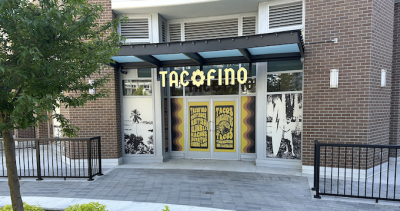Gold rush on B.C. rivers stalled
Despite its sudden withdrawal in the legislature on March 31, B.C. Liberal whip Randy Hawes says he still plans to introduce his motion supporting independent power producers.
“It is going to get introduced, I would expect,” Hawes, a two-term Maple Ridge–Mission MLA, told the Georgia Straight by phone from Victoria that same day. “I haven’t got a date for you. It might be two weeks or it might be four weeks.”
Hawes said the motion was set to go on the order paper following the opening of the legislature after March break. Then, on March 26, Environment Minister Barry Penner announced he was not going to allow a controversial power line through Pinecone Burke Provincial Park, indefinitely stalling plans for seven run-of-river projects in the Upper Pitt River region.
Who has the power?
> Date B.C. Liberals banned B.C. Hydro from generating new power: November 25, 2002
> This was the B.C. Liberals’ 2002 Energy Plan
> Total B.C. Hydro payments to Alcan (2002-07) for hydro power: $365.71 million
> Total B.C. Hydro payments to Arrow Lakes Power Corp. (2003-07) for hydro power: $111.97 million
> IPP Watch’s new slogan for B.C. Hydro: The Power Was Yours
> B.C. Hydro pledge as 2010 Olympic sponsor: “to supply clean power for the Games”
Sources: www.ippwatch.info/ ; www.bchydro.com/
“To be honest with you, we looked at what was going on with Pinecone Burke”¦and the Pitt River proposal, and”¦we don’t want support for IPPs confused with what happened with that particular proposal,” Hawes said. “It is a totally separate issue, but because it is so close together, we just thought that we should maybe wait a little while to introduce a motion that supports the concept of IPPs.”
Maple Ridge–Pitt Meadows NDP MLA Michael Sather noted sardonically: “I was looking forward to debating Randy on that issue.”
Sather told the Straight he attended a charged meeting on March 25, along with about 1,000 other people, at a Pitt Meadows school gym. The meeting, in Sather’s riding, happened a day prior to Penner’s announcement.
“It was a very good display of public pressure on government,” Sather said on March 27, before adding: “A big part of the problem is we don’t have any regional planning process, where the government and citizens can look at these projects—say in southwestern B.C., where most of them are—and say, ”˜Let’s look at all of these before we get into the applications and environmental assessments and park boundaries and decide which would be suitable candidates and which would not.’ ”
Joe Foy, national campaign director with the Wilderness Committee, told the Straight the B.C. Liberals blocked B.C. Hydro from being able to generate power in 2002—aside from the proposed on-again, off-again Site C dam—and “created a gold rush”. The only option for citizens, according to Foy, is a provincewide moratorium on the 60 or more projects coming on-stream.
“You cannot plan for sustainable power development using a gold-rush system,” he said. “If you go to the B.C. Hydro Web site, there is the Marbek Resource Consultants report Hydro commissioned in 2007. What the report says is, with modest conservation efforts, in 2027 we need not be using any more electricity than we used in 2007. This is not touted at the moment by our government because they are trying to fuel a private gold rush on our rivers, and it will have horrendous consequences, for both our environment and our pocketbooks.”
SFU associate professor John Calvert, author of Liquid Gold: Energy Privatization in British Columbia (Fernwood, 2007), argues that B.C. Hydro’s large public revenue stream, combined with 20-year fixed-term power-purchase agreements, is being used as “collateral” by the smaller private producers to borrow money for getting the projects off the ground.
“Then they build the power plant,” Calvert told the Straight. “So when the water licence expires in 40 years, what does the government do? It is likely to renew it, because otherwise they are going to have to tell the company that owns the land and the power plant to shut everything down. I think it is very unlikely that future governments would be in a position to do that.”
Susan Danard, media spokesperson at B.C. Hydro, told the Straight: “It is early days, so it is hard for us to say what will happen when those come up. But, essentially, we would assume that, in most cases, we would be buying the power.”
Penner did not respond to a Straight interview request.
For this story, the Straight asked Vancouver locals, What happens when the B.C. Hydro power-purchase agreements with independent producers expire?















Comments